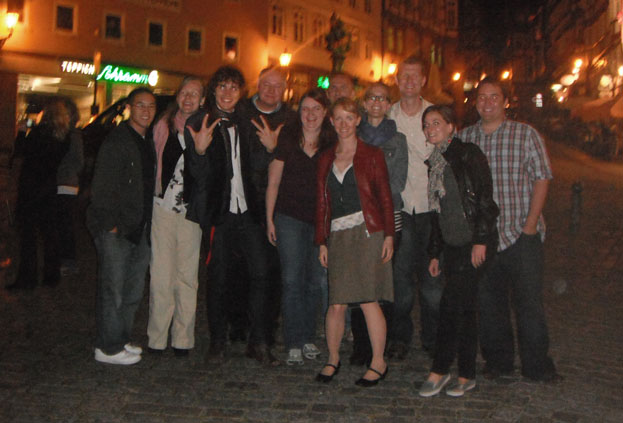Scholarship Series: Study Abroad Awards
America’s students today face tremendous financial challenges across the board when it comes to their education. Yet, the opportunities to go abroad are still there for the taking, despite financial constraints. I’ve always believed that true learning comes from the global classroom that is the world around us, not just within the walls of a classroom. The nearly half-dozen international programs in which I participated during college convinced me that only through first-hand experiences could I truly understand the world’s challenges.
Through programs in Germany, Italy, Greece and Guatemala, my time abroad guided me toward the perfect major (international studies), exposed me to the tremendous challenges of marginalized groups, helped me develop skills to carry out ethnographic research, and reminded me that some of the greatest teachers on Earth are the people we meet on the street.
Based on these experiences, I believe studying abroad is necessary for a truly complete education, which has taken root at some universities already. We live in a world in which it is imperative now, more than ever, for young students—the global citizens of the present and the future—to know how to work and move about in an increasingly interdependent world.
The benefits of studying abroad both nationally and internationally are tremendous, as the students of today will become the lawyers, doctors, teachers, policy makers and business leaders of tomorrow. In today’s globalized, knowledge-driven economy, it only makes sense that first-hand international education should no longer remain an exception but rather become the rule.
Specifically, I think three elements are critical to a truly complete international program for students:
- Academic and Intellectual Rigor - The core of any program should include classroom discussions and site visits with professors and guides to gain first-hand experiences related to issues in the area.
- Community Engagement and Civic Service - Whether through volunteering at a school or another local institution, meaningful interaction with people in their own element is a critical part of global exchange.
- Adventure and Exploration - In addition to your work, it’s important to enjoy and explore all that a country and region have to offer by taking a day trip to another major city, spending an afternoon touring the countryside, or trying the local cuisine in your neighborhood.
Yet, funding remains a major constraint to studying abroad. Whether from their parents’ coffers, short-term loans, personal savings or generous scholarships, students continue to search for ways to fund the transformational experience of studying abroad. And there are funding options available, merit- and need-based alike.
Aside from simply sending students overseas, programs such as the Rotary Ambassadorial Scholarships seek to create stronger relationships between communities. Through this scholarship, BetterGrads.org co-founder Kevin Adler, is now studying in Oaxaca, Mexico, and improving his Spanish skills while working locally on public service projects.
There’s also the U.S. Department of State-sponsored Fulbright Program—awarding more than 6,000 grants annually—for students, teachers, professionals and scholars to research, study or teach in more than 155 countries. During the 2010-11 academic year, I am one of 80 researchers in Germany pursuing an ethnographic research project on educational opportunities in Berlin. I have the opportunity to engage internationally at a level even greater than a university-sponsored study abroad program.
Finally, my good friend Brukab Sisay is pursuing his McNair Scholarship research in Ethiopia. He funded his way overseas through two other scholarships—the University of Washington’s Go Global Scholarship and the U.S. Department of State Bureau of Education and Cultural Affairs-sponsored Benjamin A. Gilman Scholarship. By combining scholarships, Brukab’s experiences prove that creative application strategies can help you form the ideal study abroad program that meets your interests and goals.
But what happens if none of the options outlined above work out? Beyond your university’s international program office, you may find websites such as www.GoAbroad.com or www.TripAdvisor.com as well as websites from the traveling guru family Steves, www.RickSteves.com and Andy Steves’s www.WSAEurope.com. And if you’re really feeling adventurous, there are opportunities to go abroad through unconventional ways like traveling the world with Pulitzer Prize-winning op-ed columnist for the New York Times, Nicholas D. Kristhof, or through STA Travel’s World Travel Internship program. For those seeking even more rigorous academic and intellectual stimulation while abroad, programs such as the Humanity in Action Human Rights Fellowship promise the rewards of tremendously expanding your worldview.
In the words of the late U.S. Senator J. William Fulbright, “Educational exchange can turn nations into people, contributing as no other form of communication can to the humanizing of international relations.” The opportunities to explore and experience the world are there for the taking, even in times of incredible financial challenge. Be persistent in seeking out the right resources, explore how you can enhance your learning internationally, and start turning your dreams into reality. I promise: you will be glad you did.

